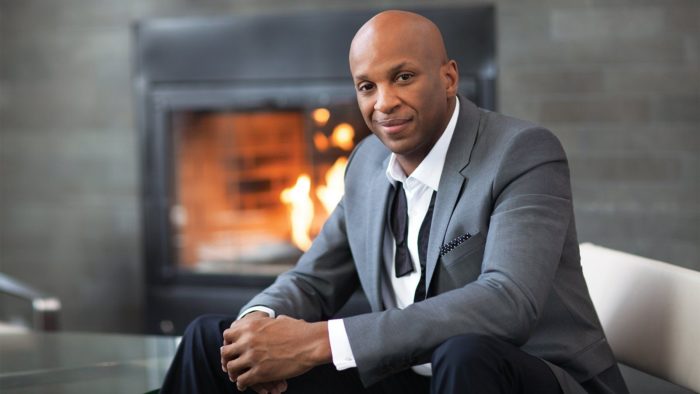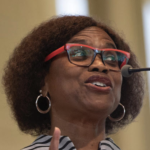
No applause for this hate-filled coming out party.
The most significant factor that keeps the Black church down are closeted, homophobic ministers. Pastor Donnie McClurkin, a three-time gospel Grammy winner and the former poster boy for African American ex-gay ministries, is one example. In a recent episode of TV One’s “Uncensored,” McClurkin spoke about his sexual past.
“I didn’t know really what a woman wanted,” McClurkin said. “I’ve messed up more than I’ve had good. My past relationships were a sprinkling of everything—men and women.”
McClurkin’s sexuality has been an open secret. However, now at 61, he is lamenting about growing old and being alone because of his sexuality. While some of the Black LGBTQ+ community would applaud someone of McClurkin’s status and telling the truth about his sexual past, many of us can’t pretend to care because of decades of damning and damaging messages he hurled at us.
At the 2009 COGIC Convocation, McClurkin espoused his ex-gay rhetoric, castigating former talented gospel industry worker Tonéx (B. Slade), who unapologetically stated that he “didn’t struggle with his sexual attraction to men.” According to McClurkin, however, Black males like Tonéx are gay because of sexual molestation, an absentee father, or they didn’t have strong male images around them. McClurkin attributed his homosexuality to being raped twice as a child—first at age eight, at his brother’s funeral by his uncle, and then at age 13 by his cousin, his uncle’s son.
“You can’t call me a homophobic if I’ve been a homosexual. … My thing was from [being] raped. And this started a pathology,” McClurkin stated on the “Tom Joyner Morning Show” in 2013.
Confusing same-gender sexual violence with homosexuality, McClurkin misinterpreted the molestation as the reason for his gay sexual orientation. McClurkin “testi-lies” that his cure was done by deliverance from God and a restoration of his manhood by becoming the biological father of a child.
However, in 2010, Pastor McClurkin’s homophobic past came back to haunt him. In 2010, he was billed as the main event in the 2010 Boston Gospel Fest, leading to many African American LGBTQ communities not attending. Then-Mayor Tom Menino didn’t go either.
“I learned yesterday—through the Phoenix article regarding the City of Boston Gospel Fest—of the depth and breath of Donnie McClurkin’s views on the gay community,” Julie Burns, then the director of Arts, Tourism and Special Events for the city, wrote to me in an email at the time.
“I am embarrassed to say that I was not aware of this, and we obviously should have vetted him further. Gospel Fest is in its 10th year and is arguably the largest gospel event in New England. Minister McClurkin was recommended to us by a number of people, and we were swayed by his artistic honors. Of course, this does not excuse the situation that we now find ourselves in! Please rest assured that Mayor Menino did not know anything about this and would never condone ‘hate speech’ of any kind.”
Menino had trust and respect among both African American and LGBTQ communities. But when it came to moving Boston’s Black ministers on LGBTQ civil rights, Menino’s struggle was like that of queer activists—immovable. His absence from that year’s Gospel Fest was another example of how Boston’s Black ministers, an influential and powerful political bloc, would rather compromise their decades-long friendship with City Hall than denounce McClurkin’s appearance.
More than 10 years later, I am still asking: Why can’t we as an African American community tell the truth about our sexuality? What price do we pay in telling the truth? And, What role does the church play in perpetuating not only unsafe sexual behavior, but also in demonizing its members of the LGBTQ community?
The answer: ministers like McClurkin.
Rev. Irene Monroe can be heard on the podcast and standing Boston Public Radio segment ALL REV’D UP on WGBH (89.7 FM). Monroe’s syndicated religion columns appear and the Boston voice for Detour’s African American Heritage Trail. She is a s a Visiting Researcher in the Religion and Conflict Transformation Program at Boston University School of Theology.

